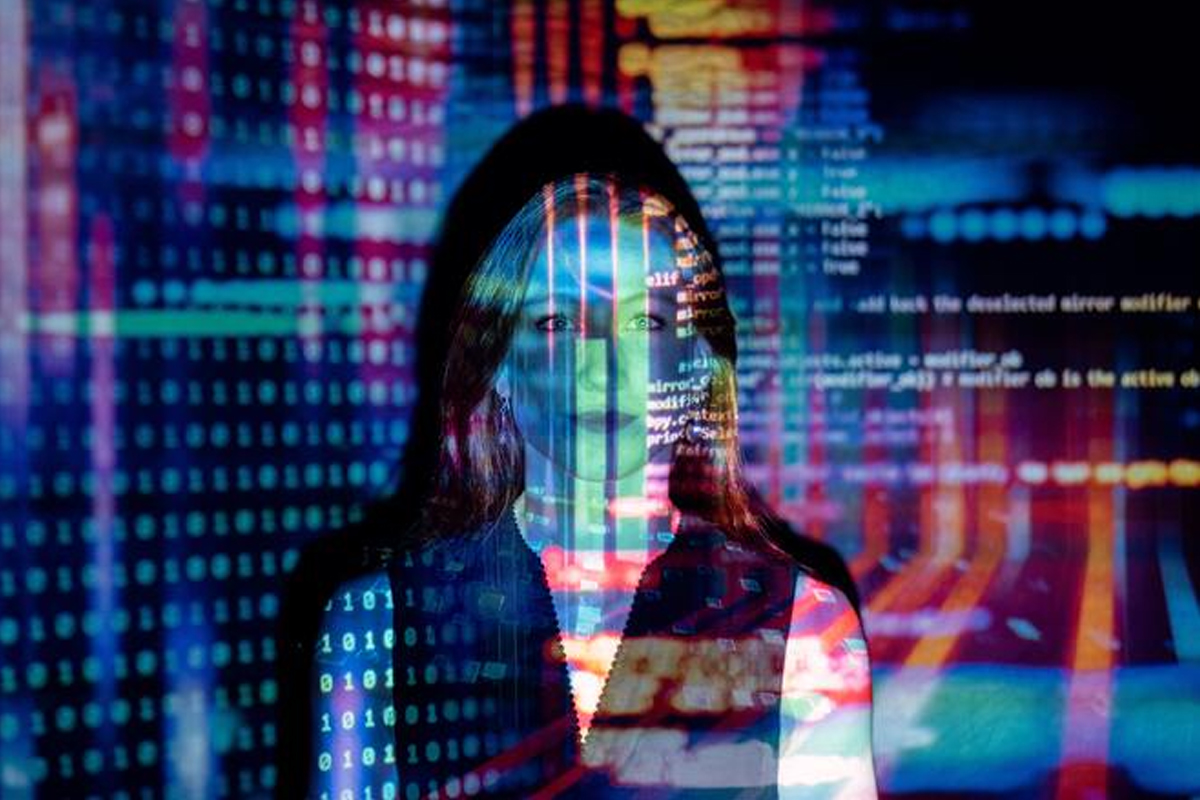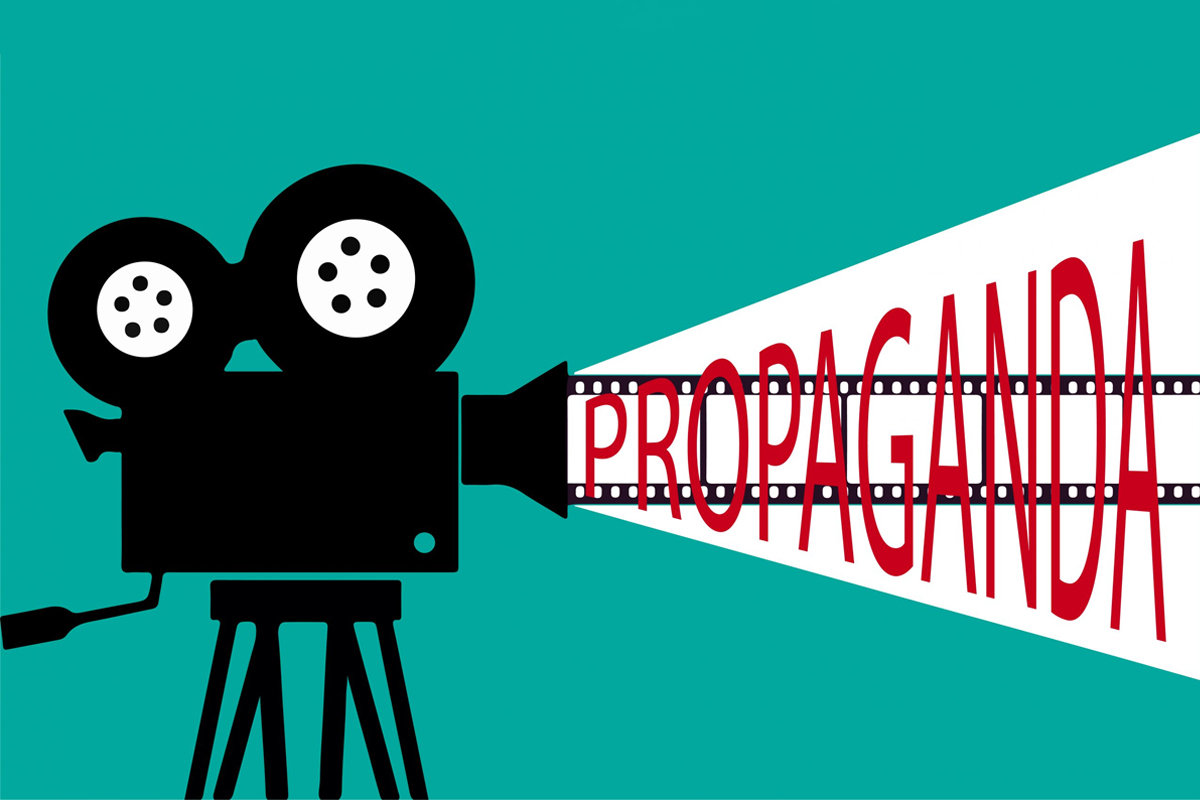
April 10, 2023
Resisting the Technological Hegemony in a Digital Age
- 0
Twenty first century Information and Communication Technologies (ICTs) fueled so many futuristic dreams of a people powered just world. The advent of PCs and the birth of internet transformed our world from an industrial to an information society where information processing took the centerstage, making ICT’s so pervasive.
Today in every walk of our life, we can’t imagine anything without ICTs. PCs and the Internet have given us such a deeply connected world, where time and geographical distance looks so much warped, blurring the boundaries of virtual and real thus changing so much about ourselves – the strange case of the post human phenomenon.
Semiconductor technologies moved more and more towards miniaturization and the industrial economy of scale gave us the magical mobile devices in millions of hands. With mobile devices enabling digital platforms, social media services, the rate at which digital technologies spread has been exponential. All this promised a world where the pre-internet monopolies will fade away and information processing and knowledge production will be more into the hands of the people than the few power centers of the world as seen in the colonial era – the creative destruction. At least the inventors of the internet dreamt the democratization of this world through these innovations and disruptions.
Islamists also saw a lot of positives in ICTs and without any hesitation jumped into it unlike their predecessors who had lots of questions about communication technologies of previous centuries like print, radio and TVs, although they accepted them further down the timeline.
21st century Islamists started seeing it as a potential way and opportunity to challenge the hegemonic control of the world powers, corporates and media houses. Arab Spring and many such anti-establishment movements strengthened this belief about the liberating power of these new technologies. The multifarious services given by so many digital platforms through the internet enabled mobile devices, created more ease in the life of those who were able to avail it. Nowadays we see the Muslim world using all kinds of digital technologies to take most of the advantages unquestionably, and also talk about Islam its message through them. Similarly we see the same degree of adoption among other communities, ideologies, political affiliations, development practitioners, activists etc.
So have the big promises of the ICT revolution of making this world a better place been achieved or at least moving towards it? Is the world now more democratic powered by the people? Are the previous century colonial monopolizers of Information and knowledge diminished? Are the capitalist modes of production and exploitation collapsed? Is the political control by few, now a story of the past?
At least from the hatred and fake news rampant on social media this doesn’t look like what was promised. The market share of this Information economy is still in the hands of a few corporate multinational giants. The divide between the rich and the poor, the social exclusion looks like never changing or rather increasing. The story of exploitation of the labor and weaker in the supply chain of this Information economy also remains the same or sometimes evidently more.
It seems like the promises of any technology enabled transformation has never been possible. So, shall we stop believing in the promises of any new technology which keeps transforming our world – agriculture, industrial and informational? They all came up with the same set of promises of making this world a better place but at their pinnacle we are unable to see anything better.
What does Islam have to say on this? Or is this question with respect to a particular religion even relevant? At least not for those who look at Islam as a cosmos guiding every aspect of the human life. But Muslim discourse on ICTs is only centered around the good and bad use of any such thing. So, if you are using ICTs for a good purpose, then why do you have to think beyond? But is the matter so simple? I mean, you take the prevalent good use of ICTs with respect to your own communitarian gains – so is it minimizing the rampant spread of hatred against Muslims and Islam? Why does fake information spread so much faster than the real facts?
Let us give an example about the supply chain of the mobile devices in our hands. Many materials used in most of the mobile devices are brought from African mines, controlled by warlords, who are very cruel to their laborers working in those mines. Then these devices are made mostly in Asian sweatshops where again the laborers are exploited to work more and paid less. The largest profit goes to the industries who manufacturers them and not the laborers.
Do we ever think about this from an Islamic ethical point of view? Do we know the reason for the cheaper cost of these mobile devices? So do we not become a part of this exploitative supply chain? So if we use these devices for good, does it wash away the sinful acts of exploitation rampant in its supply chain?
Tyranny of the Digital Platforms
Now take the example of the free services given to us by most of the internet services we use on our PCs and mobile phones. Are they really free? Like google and facebook gives us most of its services free. Remember the famous quote by the American Economist Milton Freidman “There ain’t no such thing as a free lunch”.
The business model of these digital platforms are primarily on the lines of how the old media houses used to work i.e. advertisements. They charge our attention for the free services they give us. What distinguishes the advertisement strategy of these new digital platforms from the older ones is the targeted advertisement.
These digital platforms try to know us more through our profile and the way we use our digital devices, which is basically our digital footprints we leave, while we are actively or passively using them. We keep generating more and more information about ourselves which helps these digital platforms know more about our potential interests, based upon which they sell us products, so that the probability of buying and selling is more.
The primary goal of digital platforms is to maximize their profits, hence they develop their services as addictive as possible. That’s the reason social media platforms like YouTube, Facebook, Tik-Tok etc are so addictive. And where does this all lead to? A hyper consumerist society addicted to media consumption and obsessed with buying and selling, whether it’s needed or not.
There are multiple aspects of commoditization in the present digital realm. You sell and buy tangible products like books, clothes and food online. Another aspect is the aggregators and services like ticket booking, banking, cab services, hotel renting, doctors’ appointments etc. Then we have the news, arts, entertainment, social media modes of services. If the sole purpose behind any business is to maximize profit, it takes the capitalistic form where the distribution of wealth will never be even.
What happens then? Yet, Again the cycle of bigger fish starting to eat the smaller fish repeats, killing most of the local entrepreneurial system. As a result, we keep witnessing many localized micro-entrepreneurial activities gobbled up by these giants. As they come up with huge capitals, they start giving services to the public at a discounted price, until the small scale businesses start running under loss and thus eventually shutting down.
That’s the reason the largest market share of the present information economy goes into the hands of a few big multinational corporate players i.e. google, Microsoft, Facebook and Amazon. Talk to the laborers like delivery boy, drivers and other kinds of laborers in these systems and you will again see the same kind of exploitation happening which has been there in the previous industrial economy.
The commoditization of information and knowledge results in a society where every human endeavour is done to sell more. Art and literature are produced to sell and not explore the human creativity. Education and knowledge look commoditized. What happens to the news and media services? News is produced in such a way so as to enhance more viewership. How do you do that? Add entertainment factor and masala to these things. Utilize the negative human traits of greed, hatred, jealousy, lust, laziness, lies and manufacture news and entertainment accordingly. You can see these traits being embedded in most of the popular media products – movies, video games, songs etc. Most of them spread and gain popularity based upon how much violence, sex, greed they contain.
The advent of social media takes all this to newer heights. Imagine the user monetization factor, where the reward is not only in likes and shares but money also, indulging everyone in producing media like videos, audios etc.
But not everyone is going to gain much in this kind of system, and hence you see a very small number of those who produce and get rewarded. The architecture and design of all these platforms are made not for equitable distribution of wealth but gain only for a few – thus you see most of the digital natives as media consumers.
Take the example of google search engine – such a great digital innovation. Nowadays we go to google to search for anything. Have we ever thought about how it works? It works basically on the ranking of the webpages assigned by Google’s page ranking algorithm. The higher the rank of the webpage with respect to the keyword searched the higher they will appear in the search result. But how is this page ranking done? Google doesn’t tell us exactly but some things are known. Like the more a page is visited the higher it’s rank will be.
You also see sponsored links in these search results – they are the websites which pays google to show them up. Gradually google has started personalizing the search results based upon who is searching for a particular information. This helps the user looking for information to get results as per his or her likes and context, thus making the search experience more concise and friendly. But if we start getting search results according to our own biases then how will we develop a critical perspective on anything we learn? Is this the proper knowledge culture offered in the present Network Society? Even what is visited by the most doesn’t guarantee the credibility of that webpage.
A recent example was the higher rankings of the Islamophobic website which were appearing higher in the search results on keywords related to Islam. Most of these websites peddle lies about Islam but how do they appear first in the search results? Simple fact is they are visited more and the more a page is visited the better its page rank.
In order to keep us engaged, all these digital platforms keep trying to know us more, through seeing, listening and sensing what we are doing all the time. They keep trying to find the best way to keep us glued with new videos, stories, news, products and new ways in which they operate and entertain the masses. Take example of the dopamine release that gives us immediate happiness through the social media likes we keep getting. Getting praised and happiness through it is a natural human tendency but its obsession is problematic.
In order to maximize their profits, digital platforms make us obsessed with media consumption and sharing that will enable us more likes and praises. If our life choices and actions is defined more by what others like and praise, what does this transform us into?
Like this we create our own filter bubble and remain inside our shell, closing all the doors of critical thinking, disagreements and dialogue, even when connected to the large knowledge repository offered by the internet. The present polarized nature of cyberculture is a proof of what’s going wrong with us and our society.
Yet, much of our time is passed mostly glued to these digital devices disconnected from our social and communal life. The worst happens when we start living in a complete virtual world and start perceiving realities only through them. Think about the timeline of a typical social media platform, and see what it’s making us into.
First, we keep scrolling from one post to another so rapidly – one moment we are sad, another moment happy, next we are laughing, and the next creates anxiety. The cycle goes on. This rapid shift in our attention from one post to another dilutes our concentration and presence of mind. This leads to attention deficit disorder? What does it do to our mind and psyche? Loss of empathy, memory and desensitization? Is it not the fact that crimes like theft, murder, lynching, rape doesn’t disturb us much these days?
Our engagement with them only in the virtual realm makes us unconsciously so passive that we never ever think about doing anything beyond likes and shares. Our timeline, our likes, our online petitions keep making us feel that we are doing something.
ADVERTISEMENT

Related post

September 10, 2023
Propaganda: Historical Contexts and Contemporary Challenges

April 10, 2021
